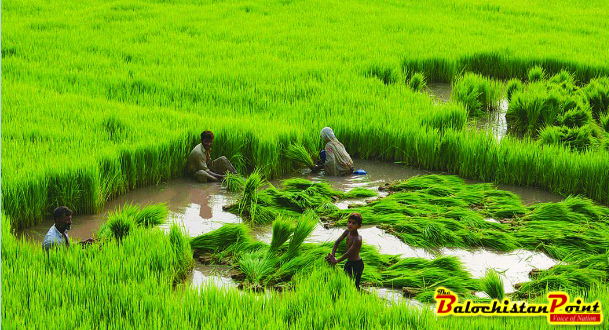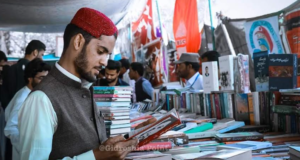FAISALABAD: A Memorandum of Understanding (MoU) was signed today between the University of Agriculture Faisalabad (UAF) and Oxfam Pakistan to improve the sustainable productivity and quality standards of Basmati rice value chain. Dr. Iqrar A. Khan, Vice Chancellor, UAF and Mr. Mohammed Qazilbash, Country Director, Oxfam Pakistan signed the MoU in a ceremony held at the university. Rice forms about 7.5% of the total export earnings. It is has a vibrant rice sub-system that caters to most of the production of which roughly 70% is exported. The MoU signifies mutual cooperation for reducing social, economic and environmental challenges faced by rice growers in the rice value chain.
The lives of rice growers in Pakistan are hostage to adverse socio-economic and environmental conditions. A range of factors, including a lack of sufficient monetary compensation for labor, shortage of health facilities, civic facilities, education, and government support along with natural hazards have adversely affected rice growers. The Basmati rice supply chain in Pakistan is characterized by a high number of challenges; issues of uncontrolled chemical use, causing health issues as well as pollution of soils, water and the environment. Additionally the highly volatile prices of inputs prevent rice producers from making profits. Many growers are in a debt spiral and cannot avail credit or loans. Last but not the least, climate change patterns in Punjab cause extreme weather conditions, alter the dates of cropping seasons and increase the occurrence of pests and diseases.
The project to improve the lives of rice growers in Pakistan will be piloted by Oxfam and Doaba Foundation. During the ceremony, Oxfam in Pakistan’s Country Director Mr. Qazilbash said, “Among the most vulnerable and marginalized people in the rice industry are the rice workers. They are mostly women and children who work in poor conditions for low wages. It is difficult for the workers to negotiate better working conditions. Together with the technical support of UAF, Oxfam aims to facilitate research, engage experts in multi-stakeholder consultations and conduct training programs to achieve our common goals in the sector of sustainable rice production.” He also mentioned that rice growers have limited opportunities to learn improved farming practices, integrated pest management, alternatives to chemical fertilizers and water management.
Mr. Javed Iqbal of Doaba Foundation stated that the project “Towards a Gender Transformative and Sustainable Basmati Rice Value Chain in Pakistan” is a joint effort to reduce gender discrimination and to increase the per actor yield with improvement of paddy quality. During implementation of this project different researches and studies will be conducted for further assessing the challenges of this sector. 10 rice grower organizations will be established consisting of men and women rice farmers in 10 selected villages of district Muridke. These areas will be capacitated with modern techniques for rice cultivation.( Press Release)
Published in The Balochistan Point on July 12, 2017
 Balochistan Point Voice of Nation
Balochistan Point Voice of Nation




